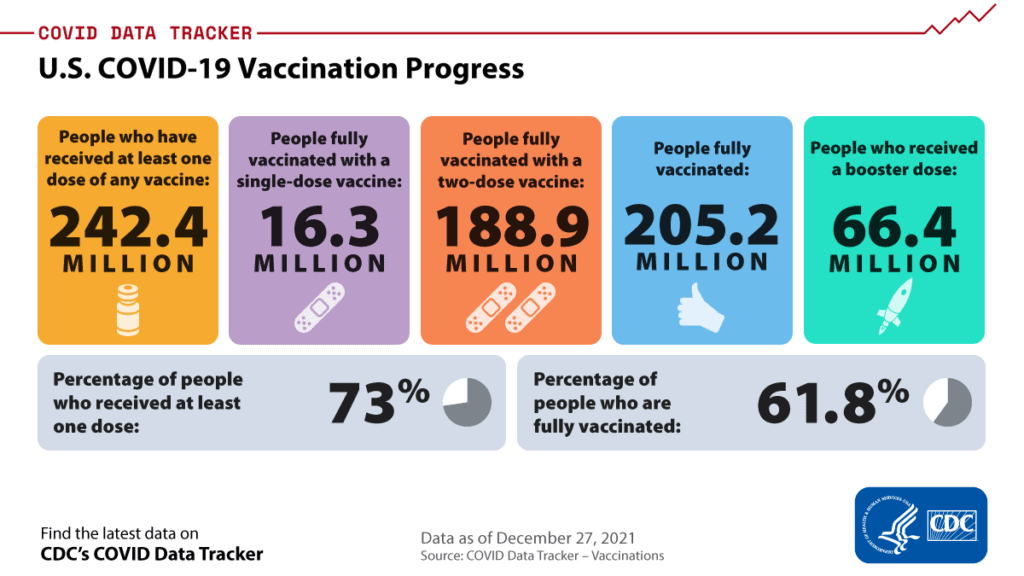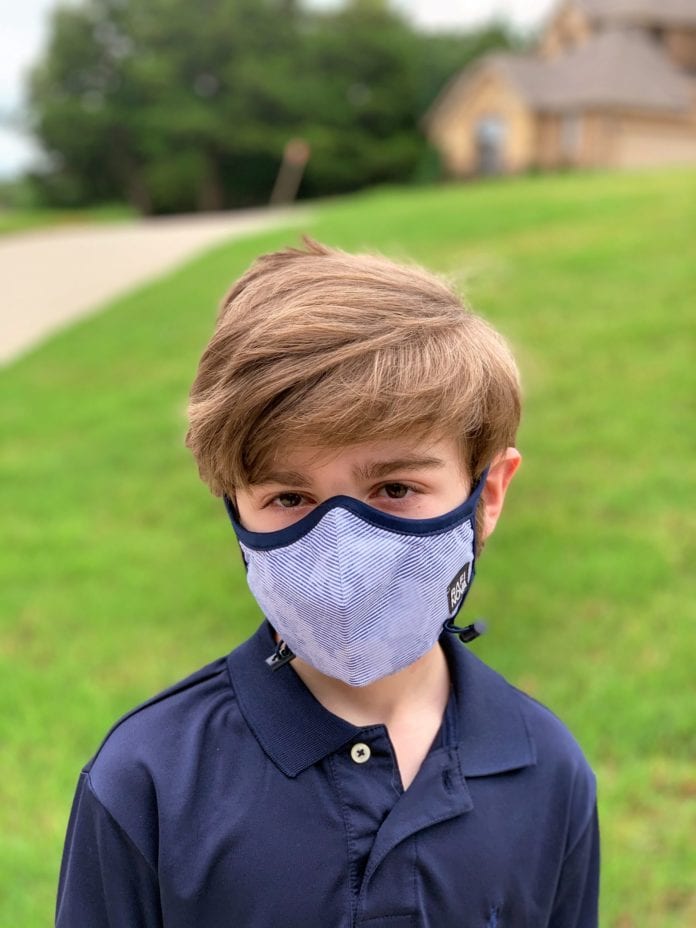Isolation Timelines Vary Depending On Vaccination Status
Given what we currently know about COVID-19 and the Omicron variant, CDC is shortening the recommended time for isolation from 10 days for people with COVID-19 to 5 days, if asymptomatic, followed by 5 days of wearing a mask when around others. The change is motivated by science demonstrating that the majority of SARS-CoV-2 transmission occurs early in the course of illness, generally in the 1-2 days prior to onset of symptoms and the 2-3 days after. Therefore, people who test positive should isolate for 5 days and, if asymptomatic at that time, they may leave isolation if they can continue to mask for 5 days to minimize the risk of infecting others.
Additionally, CDC is updating the recommended quarantine period for those exposed to COVID-19. For people who are unvaccinated or are more than six months out from their second mRNA dose (or more than 2 months after the J&J vaccine) and not yet boosted, CDC now recommends quarantine for 5 days followed by strict mask use for an additional 5 days.
Alternatively, if a 5-day quarantine is not feasible, it is imperative that an exposed person wear a well-fitting mask at all times when around others for 10 days after exposure. Individuals who have received their booster shot do not need to quarantine following an exposure, but should wear a mask for 10 days after the exposure. For all those exposed, best practice would also include a test for SARS-CoV-2 at day 5 after exposure. If symptoms occur, individuals should immediately quarantine until a negative test confirms symptoms are not attributable to COVID-19.
Isolation relates to behavior after a confirmed infection. Isolation for 5 days followed by wearing a well-fitting mask will minimize the risk of spreading the virus to others. Quarantine refers to the time following exposure to the virus or close contact with someone known to have COVID-19. Both updates come as the Omicron variant continues to spread throughout the U.S. and reflects the current science on when and for how long a person is maximally infectious.
Data from South Africa and the United Kingdom demonstrate that vaccine effectiveness against infection for two doses of an mRNA vaccine is approximately 35%. A COVID-19 vaccine booster dose restores vaccine effectiveness against infection to 75%. COVID-19 vaccination decreases the risk of severe disease, hospitalization, and death from COVID-19. CDC strongly encourages COVID-19 vaccination for everyone 5 and older and boosters for everyone 16 and older. Vaccination is the best way to protect yourself and reduce the impact of COVID-19 on our communities.

CDC Director, Dr. Rochelle Walensky said, “The Omicron variant is spreading quickly and has the potential to impact all facets of our society. CDC’s updated recommendations for isolation and quarantine balance what we know about the spread of the virus and the protection provided by vaccination and booster doses. These updates ensure people can safely continue their daily lives. Prevention is our best option: get vaccinated, get boosted, wear a mask in public indoor settings in areas of substantial and high community transmission, and take a test before you gather.”
If You Test Positive for COVID-19 (Isolate)
Everyone, regardless of vaccination status.
- Stay home for 5 days.
- If you have no symptoms or your symptoms are resolving after 5 days, you can leave your house.
- Continue to wear a mask around others for 5 additional days.
- If you have a fever, continue to stay home until your fever resolves.
If You Were Exposed to Someone with COVID-19 (Quarantine)
If you:
Have been boosted
OR
Completed the primary series of Pfizer or Moderna vaccine within the last 6 months
OR
Completed the primary series of J&J vaccine within the last 2 months
- Wear a mask around others for 10 days.
- Test on day 5, if possible.
- If you develop symptoms get a test and stay home.
If you:
Completed the primary series of Pfizer or Moderna vaccine over 6 months ago and are not boosted
OR
Completed the primary series of J&J over 2 months ago and are not boosted
OR
Are unvaccinated
- Stay home for 5 days. After that continue to wear a mask around others for 5 additional days.
- If you can’t quarantine you must wear a mask for 10 days.
- Test on day 5 if possible.
- If you develop symptoms get a test and stay home
Its just as important to find a well fitting mask. CDC recommends
Wear disposable masks with
- A proper fit over your nose and mouth to prevent leaks
- Multiple layers of non-woven material
- Nose wire
If you’re wearing a cloth mask:
- A proper fit over your nose and mouth to prevent leaks
- Multiple layers of tightly woven, breathable fabric
- Nose wire
- Fabric that blocks light when held up to bright light source
Ways to have better fit and extra protection with cloth and disposable masks
- Wear two masks (disposable mask underneath AND cloth mask on top)
- Combine either a cloth mask or disposable mask with a fitter or brace
- Knot and tuck ear loops of a 3-ply mask where they join the edge of the mask
- For disposable masks, fold and tuck the unneeded material under the edges. (For instructions, see the following https://youtu.be/GzTAZDsNBe0external icon)
- Use masks that attach behind the neck and head with either elastic bands or ties (instead of ear loops)
We have several articles on face masks we’ve tried with our opinions on them, but face masks fit each individual differently and its important to find something comfortable and protective.












